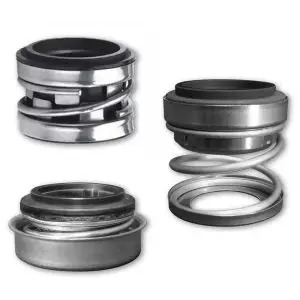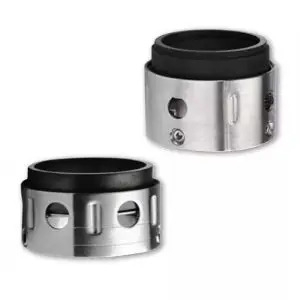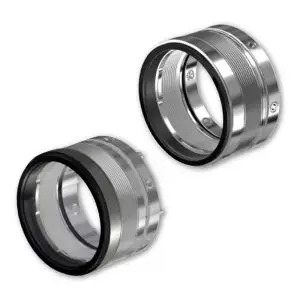Reliability You Need
A Partner You Trust
Products > Mechanical Seals > Component Seals
Component Mechanical Seals
A component mechanical seal is a traditional type of mechanical seal that consists of separate components that are assembled on-site during installation. It typically includes two main parts: the stationary component, which is mounted in the pump housing or casing, and the rotating component, which is attached to the shaft of the rotating equipment. When the equipment is in operation, these two components come into contact, creating a seal that prevents leakage.
Key features of component mechanical seals:
Separate Components: As the name suggests, the components of the seal are not pre-assembled as a single unit but are assembled
on-site during installation.
Customization: Component seals allow for more flexibility and customization, making them suitable for various equipment and applications.
Maintenance: They can be more time-consuming to install and maintain compared to cartridge seals, as each part needs individual attention.
Efficiency: Component mechanical seals offer high efficiency in sealing, as they can be precisely engineered to meet specific performance requirements. This customization ensures optimal sealing performance, minimizing leakage and extending the lifespan of the equipment. Additionally, these seals can withstand high pressures and temperatures, making them suitable for demanding industrial applications where reliable sealing is crucial. The ability to tailor the design to suit different operating conditions enhances overall system performance and efficiency.


